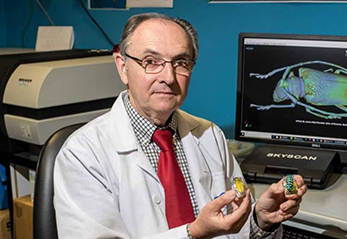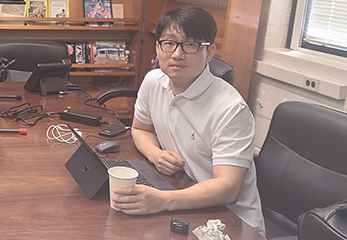Plenary Speakers
Dr. Javier Alba-Tercedor and Dr. Sangchul Lee who will bring their expertise to bear on this.

Dr. Javier Alba-Tercedor
Dr. Javier Alba-Tercedor is currently a full-time professor of Zoology in the Department of Zoology of the University of Granada in Spain, where for the last 46 years he has been teaching different subjects. A major effort of his career has been devoted to the use of aquatic macroinvertebrates for the bioassessment of watercourse degradation. In addition, he developed the IBMWP (Iberian Biomonitoring Working Party) method, today the most widely used method to assess the Ecological Status of Spanish watercourses to meet the requirements of the European Water Framework Directive. Since he started working on Micro-CT in 2010, it has become his main passion. Researching with this technique not only for anatomical studies, but also exploring functional anatomy in what he likes to call “unravelling mysteries of science”. For this ASH 2024 Conference, Dr. Javier will present his topic on “Computerized Microtomography (Micro-CT) as a valuable tool to study and discover functionalities of little organisms.

Dr. Sangchul Lee
Dr. Sangchul Lee is an assistant professor at the Department of Environmental Science & Ecological Engineering of the Korea University. He has been conducting research related to environmental big data analysis and water quality modeling. He has focused his research on monitoring and prediction of changes in water quality pollutants in rivers, watersheds, and lakes using mechanistic models and artificial intelligence models. In particular, he has been interested in applying machine learning and deep learning methods to various types of environmental data to predict and evaluate environmental ecological elements. For this ASH 2024 Conference, he has brought along the topic of machine learning and explainable AI for predicting mosquito occurrence and key contributing factors in the city of Seoul. This study uses four machine learning models to predict mosquito occurrences within the city of Seoul and identifies key contributing factors using SHapley Additive exPlanations (SHAP) analysis.

